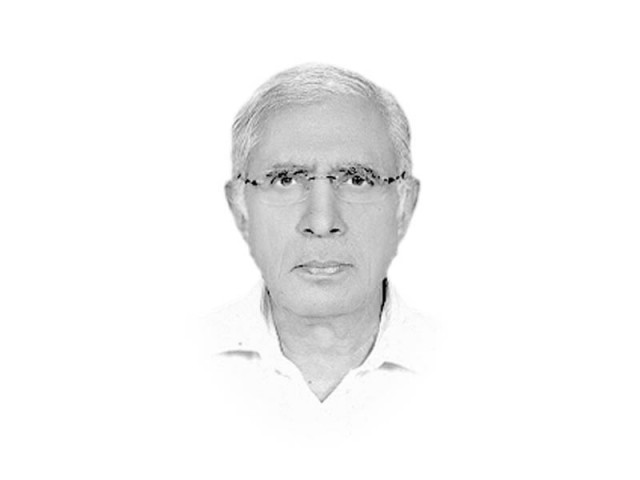In pursuit of peace
Foreign office mandarins are trained to safeguard as well as promote the national interests of their countries

The writer served as Executive Editor of The Express Tribune from 2009 to 2014
However, many of us dismiss the trio as a bunch of incompetent and inept persons and hold them responsible for the disasters that are piling up on the foreign policy front. But people demanding a ‘full-time’ foreign minister would be well advised to stop wasting their breath on something which is not likely to happen in the next 17 months (when the next election is due) if it has not happened so far. Foreign office mandarins are trained to safeguard as well as promote the national interests of their countries in what is today an interdependent world. This needs a complex set of skills. But even if they are endowed with these skills they would still fail miserably in their task if the internal policies of a country from which that country’s foreign policy is said to flow are in a mess. Most of our internal policies are subservient to our security policy which has been crafted on the premise that we face a continuous threat to our very existence from our bigger Eastern neighbour, India which has bought off our lawless smaller north-western neighbour, Afghanistan.
The premise is not unjustified but what is unjustifiable is the policy formulated to meet this two front challenge which is seemingly based on purely military might with no room for tackling the challenge with the composite strength of the nation. The composite strength of a nation takes into account both military factors (known as hard power) and economic and cultural factors (known as soft power). It is calculated numerically by combining various quantitative indices, like a country’s military strength, its state of the economy, state of health of its citizens, rate of literacy, state of other social and physical infrastructure etc., to create a single number that would reflect the real power of a nation state. This power gives higher weight to economic and social aspects of national security over the purely military.
Whenever someone has tried to redesign our domestic policies keeping the internal political and social dynamics in mind and based on our composite strength, these efforts were thwarted on the excuse that the re-designers know not, what they know not.
The other day a journalist colleague loudly wondered what would have happened if there was a civilian head of government at the time of 1965 war; when Pakistan was being torn asunder in 1971; when the Soviets had invaded Afghanistan in 1979 and; when 9/11 had happened. He thought one could write a best seller on these conjectural themes.
Indeed, one could add some more conjectural themes to this novel idea like asking what would have happened if PM Malik Feroze Khan Noon (1957-58) had not bought Gwadar from Oman in 1958; if PM Zulfikar Ali Bhutto had not got the constitution passed from parliament in 1973 and not launched a nuclear weapons programme in1974; if Naseerullah Babar, the Interior Minister of PM Benazir Bhutto had not brought to an end in 1994 the bloody civil war in Afghanistan using the Taliban; if PM Nawaz Sharif succumbing to US pressure had decided not to test(1998) our nuclear weapons following the Indian tests; if Nawaz had refused to help the US to target Osama bin Laden by sending a cruise missile into Afghanistan using Pakistani air space in August 1998 and; if General (retd) Pervez Musharraf had not disbanded the commando unit formed in early 1999 under the then ISI Chief Ziauddin Butt assigned to enter Afghanistan clandestinely and capture Osama?
So, what is needed actually to run a successful foreign policy is to give ample weight to the military input while taking a decision at the highest executive level on the issues of war and peace keeping in view the responsibility of protecting and promoting national interests which is, establishing peace within and without.
Published in The Express Tribune, November 19th, 2016.
Like Opinion & Editorial on Facebook, follow @ETOpEd on Twitter to receive all updates on all our daily pieces.













COMMENTS
Comments are moderated and generally will be posted if they are on-topic and not abusive.
For more information, please see our Comments FAQ